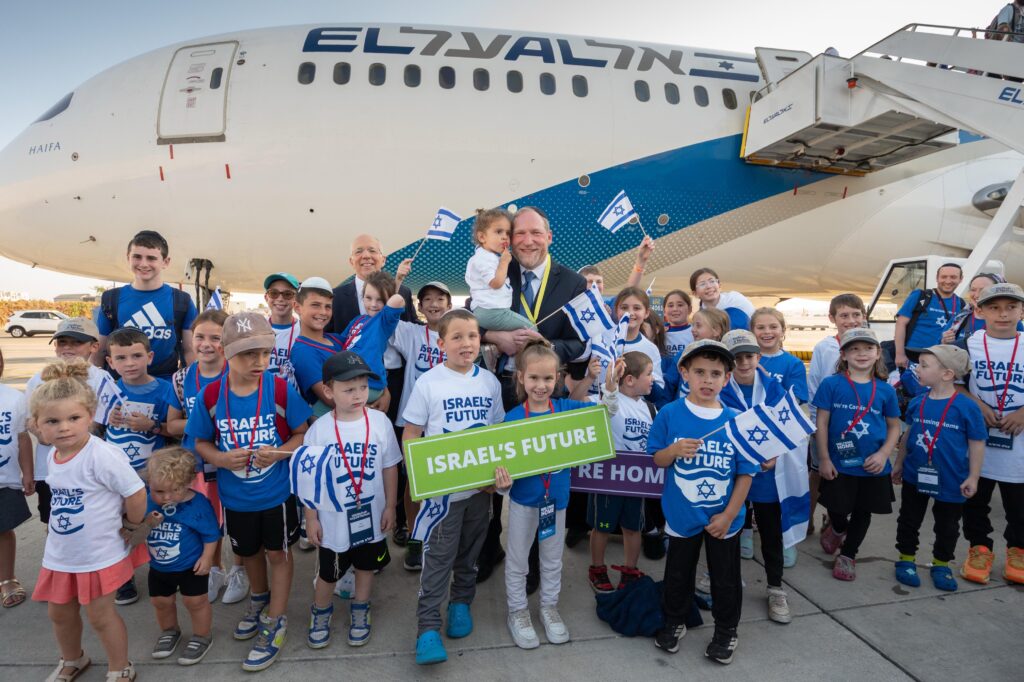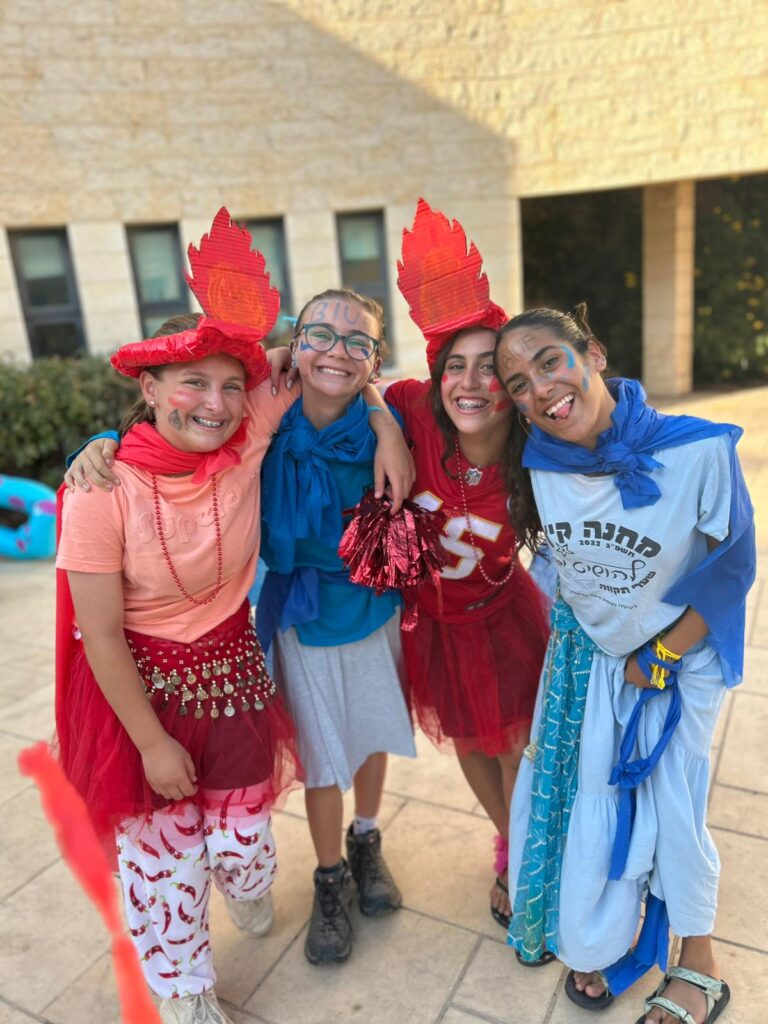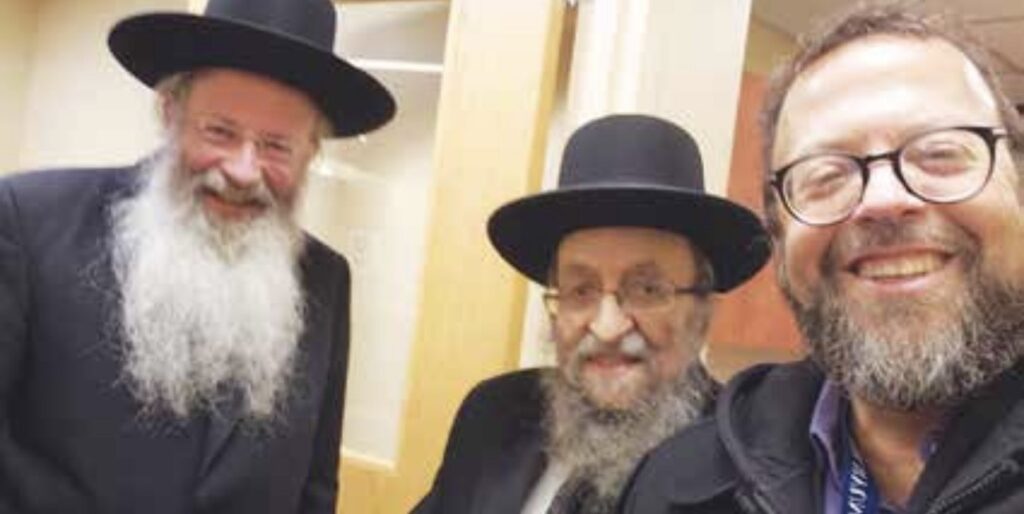Operation Benjamin: An Honorable Cause To Support
By Rabbi Heshie and Rebbetzin Rookie Billet
Ever since we retired from the Rabbinate and Jewish education in 2020 and 2021, we have tried to avoid assuming any roles that were associated with our previous lives. We are grateful and happy to have the opportunity to live in Israel. During our tenure here, we have continued to try to do our share for our beloved Jewish nation, through chesed initiatives and worthy projects. One of the projects that we have joined is called Operation Benjamin.
First, let us explain the purpose of this organization. There were a good many Jewish soldiers who fought in the armed forces of the U.S. in both the European and Pacific theaters of operation. Sadly, wars always claim casualties. During World War II, American soldiers who fell overseas in both Europe and the Pacific were buried in U.S. military cemeteries in these foreign locations. Unfortunately, some of the Jewish soldiers were mistakenly buried under a cross.
The entire issue of American Jewish soldiers improperly buried under Latin crosses was raised in 2014, when Rabbi J.J. Schacter, during a visit to Normandy American Cemetery, had an inchoate sense that there should have been more Stars of David, based on the percentage of Jews in the U.S. population. He discussed his observations with his friend and military historian, Shalom Lamm, and together they decided to investigate various theories. They widened the circle to include Stephen Lamar, a skilled amateur genealogist from Washington, D.C., and the ideas behind Operation Benjamin were formed by the three of them.
They formally created Operation Benjamin, which was named after the first Jewish American soldier whose headstone they successfully replaced, PFC Benjamin Garadetsky, a U.S. serviceman killed in 1944 during a Luftwaffe bombing of the 2nd Armored Division. Their efforts resulted in changing dozens of headstones of soldiers who served in WWII from crosses to Jewish stars.
They have led many missions to the Far East and to Europe to oversee these changes in the U.S. military cemeteries. Rookie and I participated in two of these missions. Two years ago, we traveled to the U.S. military cemetery in Manila, Philippines. And last year, we paid respect at the U.S. military cemetery in Normandy, France. Indeed, last year in France, Operation Benjamin did not change any headstones. Instead, the group reinterred the remains of a Jewish-American soldier who was killed almost three weeks after D-Day in the Battle of Cherbourg. He was originally buried in a mass grave in a German military cemetery in Marigny, France, a fact that remained unknown for 79 years. Through the detective work and the intense efforts of Operation Benjamin, some of his remains were exhumed, positively identified, and reburied in the U.S. military cemetery in Normandy.
We all understand that there are numerous halachic questions which arise in rare cases like these. Operation Benjamin conforms to the observance of normative halachic Judaism. Hence, thorny halachic questions are referred to the leading halachic authorities of our communities, both in Israel and in the United States. Indeed, that process resulted in a very moving religious service in the U.S. military cemetery in Normandy, with full military honors and a completely halachic burial one year ago.
We believe that people know how frugal Heshie (aka RHB) was with the YIW charity account. During that tenure, we tried to check out every organization and individual who came to us for donations of any significance before we made a contribution. The overhead of an organization was always an important consideration. Every organization has overhead. The question is what percentage of the charity money goes to pay for overhead, and what percentage goes for the charity itself. Charity money is sacred and must be spent responsibly.
We treated Operation Benjamin no differently. In our opinion, it has a very low overhead vis-à-vis its legitimate operating expenses; it operates on a very small budget. Actually, too small a budget. It relies on support from within the group that travels under its auspices to these locations and from outside the group as well.
There are many necessary and legitimate expenses involved in running this organization. Those of us who participate in the missions pay our own way completely. We are not an expense of Operation Benjamin. In order to do things properly, genealogists are employed, and there are travel expenses connected to the research and planning for every burial.
Let us give you a few examples:
1. At times, representatives of Operation Benjamin must travel down to Washington, D.C. to the ABMC (American Battle and Monuments Commission). The U.S. military cemeteries are their responsibility. They are very supportive of what Operation Benjamin does, and they are as helpful as could be.
2. The site of the cemetery in Europe or the Far East also has to be visited. The graves have to be located and arrangements must be made locally for the eventual changing of the headstones.
3. An executive director and a small office staff also must be funded.
In our own meticulousness regarding charity money, we have looked at the books and gone over the expenses of Operation Benjamin. We have no hesitation in saying that the organization is as careful as can be with regards to frugality, but is chronically underfunded. It desperately needs support from the Jewish community.
We want to add one religious piece, which is very important to us. The 21-month war that we (and all Jewry) have lived through in Israel, and continue to live through, has made a very deep impression on our hearts and our minds. We are old enough to remember the war with Egypt in 1956, the Six-Day War, the Yom Kippur War, the First Lebanon War, the Second Lebanon war, the current war against Hamas, the recent war against Iran and its allies in Gaza, Syria, and Lebanon. We have attended too many funerals of people whose families we are connected to in one way or another.
Everything that you do for a deceased person, and certainly for a deceased IDF soldier, is called “chesed shel emes,” or “kindness of truth.” That is true as well for all Jewish soldiers who have fallen in battle for America and the free world. It is always difficult and painful to attend the funeral of a young person who has fallen in battle before fulfilling some of his enormous potential.
In all of the funerals we have attended over these past 21 months in Israel, there were always many family members and friends present in the cemetery. Their presence was a source of honor for the soldier and a comfort for the bereaved family.
Imagine a U.S. soldier killed in battle more than 80 years ago. Some of them were married and may have living descendants today. Many of them were young single men like my father-in-law, Rookie’s dad, who blessedly survived his service despite being wounded and discharged. Of these young, single men, we are usually able to find some living relatives who are interested in remembering them and honoring them as Jews. But not always! We just need to imagine the kindness and the mitzvah involved in doing the work of Operation Benjamin!
Our family is especially sensitive to this matter. We have family members who were murdered during World War II by the Nazis. In addition, Rookie’s father, Arthur Katz, fought in France and was wounded there. He survived his wounds and got married after the war, and that is why we have a family today. But we also have an imagination regarding those who were far less fortunate, and that is what makes this project so important and emotional for us.
Our commitment to this project motivates us to write this short article about Operation Benjamin. As a family, we have never boasted about the contributions we have made. While we do not plead poverty, we were not born with silver spoons in our mouths. We have each worked hard for the Jewish community. Heshie as a synagogue rabbi for 40+ years and Rookie as an educator in Jewish day schools and high schools for just as long. We earned a respectable living. We were very fulfilled by the careers we undertook and the work we did. But we have not reached the financial level of being able to call ourselves philanthropists.
Yet, we have donated generously in support of the holy work of Operation Benjamin. We have traveled twice on missions. We were in the U.S. military cemetery in the Philippines and in the U.S. military cemetery in Normandy. We paid our own way and have gotten great satisfaction from being part of this group of special people who support this effort. Indeed, we took two grandsons to Normandy. One of them is entering the IDF early next month. And the other is now serving in the IDF reserves and spent months in a tank fighting in Gaza at the height of the current war.
To summarize, in the Philippines, our group replaced the headstones for four Jewish soldiers who were killed fighting the Japanese during WWII from crosses to Jewish stars. After each Jewish star was installed, a U.S. colonel (not of our faith) walked up to each grave and gave a long salute of respect. When we returned to our hotel following the service, we saw the colonel sitting in the coffee shop. We chose to go over to him and thank him for the dignity he added to our service. He said to us, “It is I who should thank you. You Jews are the most incredible people I have ever met. Who else would worry about a member of their faith who was killed 80 years ago in battle? None of you are even relatives of those men. And yet you are here to give them honor and respect and bring them ‘home’ to their people.”
There is so much work yet to do. Operation Benjamin is expanding and now will be including Operation Levi to accord the same lasting tribute to Jewish soldiers killed during World War I on both the Allied side and the German/Austrian side as well. There are more than 1,000 Jewish soldiers buried under crosses from the Great War.
We sincerely hope you can see how this cause if both important to the Jewish people and to us as individuals, who desire only to accord the proper respect and dignity to the brave men who fought in these historic battles. We hope that this brief summary makes a compelling case for a holy cause. Please join us in supporting Operation Benjamin to honor our Jewish soldiers. You can find out more about it online at OperationBenjamin.org. n
Rabbi Heshie Billet is Rabbi Emeritus of the Young Israel of Woodmere and a past President of the Rabbinical Council of America. Together with his Rebbetzin, they built institutions that shaped Jewish life in the Five Towns of Long Island and beyond. Today, they live in Israel after making aliyah.













